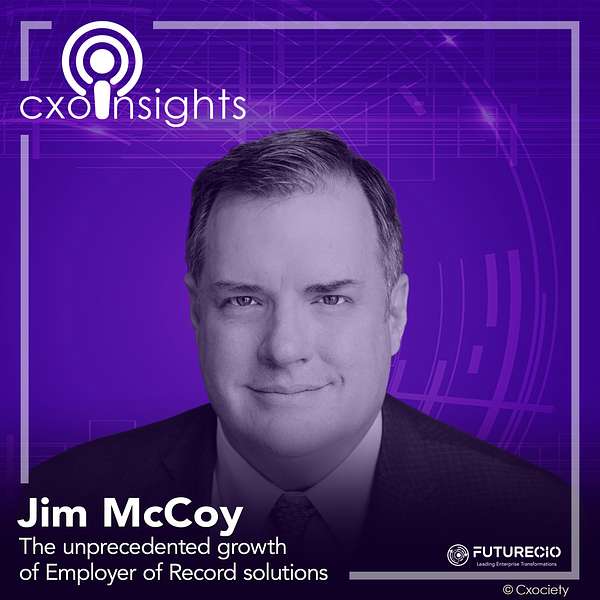
CXOInsights by CXOCIETY
CXOInsights by CXOCIETY
PodChats for FutureCIO Fast tracking the talent side of doing business in Asia
PodChats for FutureCIO: Fast tracking the people side of doing business in Asia
Finding and retaining talent poses significant challenges and opportunities in Asia and around the world. One of the main challenges is the increasing competition for skilled professionals in the global job market. As economies grow and industries evolve, the demand for highly qualified candidates often exceeds the available supply. This talent shortage can make it difficult for companies to find, attract and retain the right talent for their specific needs. Additionally, cultural and language barriers, as well as differences in labour laws and regulations, can further complicate talent acquisition and management processes.
These challenges present opportunities for companies to explore innovative solutions such as the Employer of Record (EOR) model. An Employer of Record is a service provider that acts as the legal employer of workers on behalf of client companies. This model can help organizations fulfill their talent needs anywhere in the world by leveraging the EOR's expertise in navigating local labor markets, compliance requirements, and administrative tasks. By partnering with an EOR, companies can access a global talent pool, streamline their hiring processes, and ensure compliance with local employment laws. This not only expands their reach but also enables them to focus on core business activities while leaving the complexities of HR and employment administration to the EOR. Ultimately, the Employer of Record model offers a flexible and efficient solution to finding and retaining talent on a global scale.
Jim McCoy, CEO of Atlas HXM reveals the nuissances organisations will face in the quest to acquire the right talent anywhere in the world, and how EORs like Atlas fill those needs.
1. How would you typify or describe the international expansion activities of APAC companies? Are there any distinct trends that you can observe in markets like Hong Kong, China, or Singapore?
2. In terms of challenges. So for enterprises that are on expansion mode, whether global or regional, there's almost always a shortage, crunch in skilled people. With the hybrid work environment, has it complicated the model of acquiring or are using an organization such as yours, the EOR, to fill in the roles that they need?
3. In terms of similarities, or differences in how enterprises in markets like, like Hong Kong, or Singapore, or the less developed markets, like Malaysia, for example, as they start to look at these expansion strategies that they have, are there any unique elements, traits that you're noticing that are unique in the sense that it's unique to Asia, or it's the doesn't matter whether it's a European company trying to expand even within the same region?
4. Are there any emerging risks that as an organization, Atlas, encounters these days, as you try and employ become as you already are for other organs for your clients, that you're observing in the market now?
5. On technology – you mentioned automation, partly to help with the process, but you still need to have the human interface in there. These days, there's a lot of chatter around AI, for example. And of course, automation is starting to mature a little bit in software automation. What technologies have you observed are becoming more prominent in us as augmenting IE or supporting your atlases business, globally oriented?
6. When you onboard a new client or new customer, what's the most challenging aspect of onboarding a new client to the Atlas way of doing business?
7. So you said, if you have a large multinational customer, client that's expanding the market. And they have existing systems and processes in place where in terms of talent management, and it doesn't sync very well with the way you've set up? How do you negotiate or make the two compatible?
8. what's your biggest challenge these days? As you know